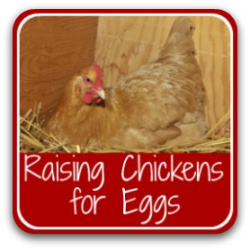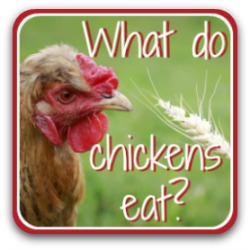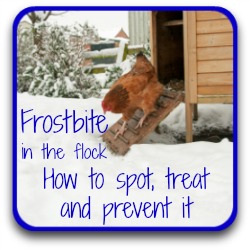- Home
- Challenges
- No eggs!
Chickens not laying eggs: what's going on?
Fresh eggs are one of the great joys of keeping chickens. But what happens when your hens suddenly stop laying?
Sometimes the reason is natural: age, moult, or a seasonal slowdown. Other times, it may be a sign of stress, poor diet, or health problems. The good news? There’s almost always an explanation, and something you can do about it.
In this guide, I’ll walk you through ten of the most common reasons why chickens stop laying, plus simple steps to get them back on track.

🪶 Featherlight Takeaways.
Quick insights from this article – especially helpful if you’ve noticed your egg basket looking emptier than usual.
- Chickens may stop laying for natural reasons (age, breed, moult, broodiness).
- Diet, light levels, and stress are key factors in egg production.
- Health issues, from parasites to heat stroke, can slow or halt laying.
- Nest box design and location really matter to hens.
- Most laying problems can be solved with small, practical changes.

Wondering what’s going on? Skip straight to the bit that fits your flock, or read it all to cover every possibility.
Before you panic – have your chickens stopped laying eggs? 3 quick things to check.
Before you decide your hens have downed tools, it’s worth ruling out three simple explanations. Sometimes eggs are still being laid – just not where you might expect!
1. Predators and vermin: some predators (like snakes or raccoons) and rodents such as rats and mice love a free meal. Eggs are the perfect takeaway.
Check your coop and run for tell-tale signs.
2. Free ranging: hens with free rein may lay their eggs anywhere but the nest box.
Make sure you comb the free ranging area for hidden stashes of eggs.
3. Egg eating: a difficult habit to break, and a fairly common issue in flocks. It can be a messy, stubborn habit to solve, but it can be done. Find out how in my detailed egg-eating article.
🐥 A note from my flock: this is one of my Lemon Millefleur Sablepoot roosters, Bono. Bono developed a taste for fresh eggs, much to the ladies’ annoyance – and mine!
He wore the evidence all over his feathers, so I had no doubt who the culprit was. He did learn his lesson, but it took time and patience.

1. Age.
When do chickens start – and stop – laying eggs?
Too young to lay?
Hens do not start laying eggs until they're mature, somewhere between 18 and 28 weeks of age, depending on breed and season.
Signs they’re nearly ready are:
- They start "squatting" submissively when you reach towards them.
- Comb and wattles enlarge and turn from pale pink to red. This photo of one of my Red Stars, Lulu, demonstrates this perfectly.

Too old to lay?
Egg production peaks a couple of months after a hen starts, then slows down each year, so they will produce fewer, and smaller, eggs as they age.
By between 6 and 7 years many hens lay only occasionally, though some may continue up to 10 years(1).
 Data source: University of Florida, Department of Animal Science, 2017
Data source: University of Florida, Department of Animal Science, 2017What to do if age may be an issue.
- With young hens, choosing breeds which lay earlier is important. Otherwise, patience is the only answer!
- With older hens, accept that laying slows naturally. Many keepers, myself included, let their faithful hens enjoy a peaceful retirement without any expectation that they will keep producing eggs.
🐥 A note from my flock: my Red Stars usually begin laying right on schedule at 20 weeks, while my Sussex ladies have often kept me waiting until nearly 28 weeks.
2. Breed.
Which chickens are the best egg layers?
Not all breeds are created equal when it comes to eggs. Some hybrids are bred to lay almost daily, while many heritage breeds produce fewer eggs but bring other qualities to the flock.
Top performers:
There's no doubt about my top two best laying hens:
- Red Star (also known as the Cinnamon Queen or Golden Comet): reliable daily layer of medium sized, creamy-brown eggs
 24 eggs from just four days egg laying from six of my Red Star chickens.
24 eggs from just four days egg laying from six of my Red Star chickens.- Leghorn (Livorno): hardy in hot and cold temperatures, and famous for daily large white eggs.
- Other excellent layers: the list below combines a number of different lists, scoring the ten most popular egg layers across them all.
- (Some of these links are affiliate links to the Cackle Hatchery, which means that if you click and buy something, I earn a small commission at no extra cost to you).
What to do about choosing breeds.
- When choosing chickens, balance egg numbers with breeds which suit your climate and other flock members.
- Remember that best egg layers might not be the prettiest, while showy breeds may not fill your egg basket.
3. Diet.
What should laying hens eat and drink?
Feed and water are two of the biggest factors in egg production. Studies show that if either slips, your hens may slow down or stop laying altogether(1, 2).
Drink.
- Fresh, clean, cool, water, unfrozen in winter, should always be made available.
- In hot weather add extra containers placed in shady spots around the run.
- Hydrating treats like cucumber and watermelon can help in summer.
 Leave water containers dotted around the run.
Leave water containers dotted around the run.Feed.
- Chickens need different nutrients at different times of their life. See this article for more details.
- Offer a high quality layer feed a couple of weeks before hens start producing eggs.
- Don't rely on foraging, treats or scraps alone. They will not provide the balanced nutrition a laying hen needs.
- Fermented feed has been shown to boost the immune system and benefit older laying hens in particular(4).
- Extra calcium: a hen's need for calcium increases by four times once she starts to lay(1, 5). Without it, her egg production will reduce and the shells will be of lower quality and more prone to break.
- Provide a source of crushed oyster shell separately to her normal feed. Hens will naturally take as much as they need, and males will instinctively leave it alone.
What to do to ensure food and drink is not the issue.
- Check to make sure your feed is not mouldy, or contaminated with vermin droppings.
- Always provide a constant supply of fresh water, high quality feed, free choice oyster shell and the occasional treat of fermented feed.
4. Light in the chicken coop.
Does it help or hinder egg laying?
One simple biological fact explains a lot about egg slowdowns: hens need around fourteen hours of daylight to trigger egg production.
As daylight hours shorten in autumn and winter, a hen's pituitary glands stop releasing the hormone that tells the ovaries to produce eggs. So fewer daylight hours mean, biologically, fewer (or no) eggs.
Which is why commercial farms keep lights on for between 14 and 16 hours.

However...
- providing more than 16 hours' light is proven to lead to a decrease in egg laying(6)
- the quality and colour of light is important(7).
What to do to be sure that light is not an issue.
- Decide whether you want eggs year-round, or if you're happy to give your flock a natural winter break.
- If you decide to add light, use a timer so that the hours are consistent.
- Take time to read about the optimum time, colour and brightness levels. Otherwise, you may be adding light to no good effect.
- My article about light in the chicken coop covers everything you need to know.
5. Moulting.
Does your coop look like someone has had a pillow fight?
One of the most common reasons chickens stop laying is moulting.
- Each autumn, hens shed old feathers and grow a fresh set, ready to protect against winter.
- So if egg production has slowed, your coop and run look like a pillow exploded and your hens are looking rather shabby, moulting is the likely culprit.
 One of my usually stunning Golden Laced Wyandottes during the moult.
One of my usually stunning Golden Laced Wyandottes during the moult.Why does it affect eggs?
- Feathers are around 90% protein, eggs about !3%.
- Hens need to redirect much of their dietary protein into feather regrowth.
- So egg production slows or stops until they’ve finished the moult and can once again use protein to make eggs(9).
When moulting stops chickens laying eggs: what to do.
- Don’t try to prevent moulting. It’s natural and necessary.
- Support your flock with a little extra protein, always keeping treats to under 10% of their diet.
- Healthy choices include sunflower seeds, sprouted lentils, fish, or mealworms.
- Take a look at my Poultry Protein Platter recipe for ideas about combining proteins you have in your store cupboard into a healthy treat your chickens will love.
- Be patient. Egg laying usually resumes once their new feathers are in.
- See my detailed article about dealing with moulting for more detail.
6. Broody hens.
Would your hens prefer to hatch eggs rather than lay them?
A broody hen is just a female chicken who has decided she wants to hatch chicks. It doesn't matter whether or not there's a male around to fertilise the eggs: her hormones take over and nothing will persuade her there's no point.
She’ll spend most of the day sitting on eggs – hers or anyone else’s – only leaving the nest briefly to eat and drink.
While she’s broody and sitting on her clutch, she will collect eggs, but won’t lay. In fact, many hens won’t start laying again for several weeks after the chicks have hatched.
Some breeds are far more likely to go broody than others. Silkies, Orpingtons, Brahmas and Cochins are famous for it, while hybrids such as Red Stars and Leghorns rarely bother(11).
 Some hens will go broody no matter what!
Some hens will go broody no matter what!There is some evidence that hens lay at a higher rate when they finish being broody, to compensate for eggs not laid during that time(10).
What to do if a broody hen is affecting your egg supply.
- If you're happy for your hens to go broody, there's no problem. Let nature take its course.
- Otherwise, you’ll need to "break" her broodiness. This can be as simple as lifting her off the nest every time you see her sitting, or isolating her in a wire-bottomed crate for a few days until her temperature falls and her hormones subside.
- When adding to your flock, avoid the broody-prone breeds if you want steady egg production.
7. Chicken health.
Hens can stop laying if they have health issues.
A sick chicken will put her energy into trying to regain health and egg laying slows down or stops. It can be the first sign that spmething's physically wrong.
- It's not only extreme diseases like bird flu and Coccidiosis that create issues.
- Common external parasites like mites, lice and fleas can cause anaemia and have been found to cut egg production by as much as 20%(1).
- Mosquito and fly infestations in the coop and run are also culprits.
What to do if your hens have stopped laying because they're not well.
- Practice good biosecurity measures. Limit outside visitors to the flock, and keep wild birds at bay.
- Boost their immune system naturally. Plants, herbs and weeds are excellent "superfoods" for chickens.
 Dandelions are a superfood for chickens!
Dandelions are a superfood for chickens!- Keep a well stocked chicken first aid kit so you can treat minor problems quickly, before they affect egg production.
- Check flock health regularly by simply spending time with your chickens, watching for changes in behaviour, appetite, or appearance.
- My chicken health check details what to look for, from comb to toe!
8. Heat stroke.
Are your hens too hot to lay?
Chickens cope far better with cold than with heat. When temperatures rise, egg laying is often one of the first things to stop: it's a sure sign of heat exhaustion in chickens.
In humid areas (around 50% humidity or more), mild heat stress can set in as low as 20ºC (68ºF). By 30ºC (86ºF), the risk of heat stroke is high.
In drier climates, birds tolerate heat a little better, but once temperatures reach 40ºC (104ºF), heat exhaustion – and death – become likely(12).
Egg production drops or stops altogether because the hen’s body diverts energy away from laying and into survival.
What to do if heat is causing your hens to stop laying.
- Learn to recognise the signs of heat stress. This article covers them all.
- Provide several different sources of cool water in shady areas through the chicken run.
- Offer electrolytes, or make your own, to help prevent dehydration.
- Make sure your coop has adequate ventilation. Fans above head height help move air.
- Provide a shaded dust bath. Chickens use them to cool down and to combat mites.
 Providing a shady dust bath helps hens deal with heat.
Providing a shady dust bath helps hens deal with heat.- Avoid high protein foods and apple cider vinegar in the heat. Both increase metabolism which raises their core temperature.
9. Stress.
A hidden cause of chickens not laying eggs.
Chickens are naturally nervous creatures: after all, almost everything sees them as an easy lunch! A sudden change in their environment or a constant source of worry can be enough to release a flood of stress hormones, which switch off egg production.
Common stress triggers include:
- A new coop, or even sudden changes inside it (feeders, perches, even decorations).
- New flock members, or overcrowding.
- Pests like mites, flies or rats invading their space.
- Predator presence: even the sound of a hawk overhead can stop laying.
- Past stress as a chick: there's evidence that even overcrowded or poor rearing conditions as a baby chick can negatively affect a hen’s laying years later(13).
Chickens can deal with stress if they are provided with the means to adapt to the cause.
So the first step is to identify that your chickens are stressed.
- Watch for signs of stress: feather pecking, constant preening, aggression and bullying, for example.
- Or the opposite: chickens looking hunched and miserable, not wanting to leave the coop, not eating or drinking, comb and wattles turning pink instead of red, for example.
- Look for evidence of predators and pests, and make the environment calm and predictable with good feed, clean water, biosecurity and safe nest boxes.
- Check for any signs of illness or disease.
- Finally, prevention is better than cure: a happy hen is a laying hen!
🐥 A note from my flock: we have a pair of buzzards that regularly circle over our valley. They never come near the run, but simply hearing their cry is enough to put some of my hens off laying for days.
It’s a reminder that even unseen predators can unsettle a flock.
 One of a pair of buzzards which unsetlle my chickens without even approaching them.
One of a pair of buzzards which unsetlle my chickens without even approaching them.10. Nest boxes.
One of a laying hen's most important influences.
Hens can be surprisingly fussy about where they lay. If your chickens have stopped laying in the coop, it may be the nest boxes that are putting them off.
Research shows hens without suitable nest boxes show stressed behaviour and higher levels of stress hormones(14).
And stress, of course, means fewer eggs.
What to do about nest boxes.
- Check you have enough. Ideally, there should be one to every three or four hens – even though they will still argue over the same one!
- Make sure they're in a quiet, private, accessible, safe place. Think of this from a hen's point of view!
- Keep them clean, lined with comfortable bedding and away from draughts and disturbance.
- For inspiration, see my article about nest box design.
- I also have a detailed article about what research has found about the perfect nest box.
Frequently Asked Questions: why aren't my hens laying?
Why have my chickens suddenly stopped laying eggs?
Why have my chickens suddenly stopped laying eggs?
Common causes include moulting, stress, heat, poor diet and reduced daylight hours. Use this article to assess the issues for your own flock.
At what age do chickens stop laying eggs?
At what age do chickens stop laying eggs?
Most hens peak in their first two years, then gradually slow down. By between six and seven years many stop altogether, although some will lay occasionally into old age.
Do chickens lay eggs all year round?
Do chickens lay eggs all year round?
Not naturally. In winter, shorter days mean fewer eggs unless artificial light is added. Many keepers prefer to give hens a seasonal rest.
How can I get my chickens to lay more eggs?
How can I get my chickens to lay more eggs?
A hen cannot physically produce more than one egg a day, but we can help our hens by providing a balanced layer feed, clean water, good nest boxes, and minimise stress.
Adding extra artificial light in winter can help, but isn’t essential if you prefer a natural cycle.
Do mites stop chickens laying eggs?
Do mites stop chickens laying eggs?
Yes. Mites, lice, and other parasites drain a chicken’s energy and can reduce egg production by 20% or more.
Keeping on top of coop and run hygiene is essential.
More articles to keep your flock healthy.
Sources.
A lot of "facts" you'll find on the internet are often people's individual views, based on inaccurate information repeated from poor quality sources.
The information I provide in this article and others is based not just on my own experience, but on evidenced facts from scientific, peer-reviewed research and books from highly respected and experienced poultry keepers such as Gail Damerow.
Some of the trusted sources I have used in this article are these.
1. Jacob, J., et al: Factors Affecting Egg Production in Backyard Chicken Flocks. Pub. University of Florida, Department of Animal Science, 1998, revised 2017.
2. Li, F., et al: Effect of daily feed intake in laying period on laying performance, egg quality and egg composition of genetically fat and lean lines of chickens. Pub. Journal of British Poultry Science, 2011.
3. Valkonen, E., et al: Effects of dietary protein on egg production of laying hens housed in furnished or conventional cages. Pub. Journal of Animal Science, 2007.
4. Guo, W., et al: The impacts of fermented feed on laying performance, egg quality, immune function, intestinal morphology and microbiota of laying hens in the late laying cycle. Pub. Science Direct: The Animal Consortium, 2022.
5. Jacob, Wilson et al : 'Factors affecting egg production in backyard chicken flocks'. University of Florida, 2013.
6. Ostrander, C and Turner, C.N.: Effect of various intensities of light on egg production of single comb white Leghorn pullets. Pub. Journal of Poultry Science, 1962.
7. Jacome, I, et al: Influence of artificial lighting on the performance and egg quality of commercial layers: a review. Pub. Brazilian Journal of Poultry Science, 2014.
8. McCowan B, et al: Effects of Induced molting on the well-being of egg-laying hens. Pub. Journal of Applied Animal Welfare Science, 2006.
9. Nasir Rajput et al: Comparative Study on the Pre-molting Performance of Different Strains of White Leghorn Layers. Pub. Poultry Industry, 2017.
10. Jiang, R. S., et al: Broodiness, egg production, and correlations between broody traits in an indigenous chicken breed. Pub. Journal of Poultry Science, 2010.
11. Chicken Breed Chart. Pub. Michigan State University.
12. Tirawattanawanich, C., et al: 'The effects of tropical environmental conditions on the stress and immune responses of commercial broilers, Thai indigenous chickens, and crossbred chickens'. Pub. Journal of Applied Poultry Research, 2011.
13. Hedlund, Louise: Effects of stress during commercial hatching on growth, egg production and feather pecking in laying hens. Pub. National Center for Biotechnology Information, 2022.
14. Shi, H., et al: Effects of nest boxes in natural mating colony cages on fear, stress, and feather damage for layer breeders. Pub. National Center for Biotechnology Information, 2019.
- Home
- Challenges
- No eggs!















